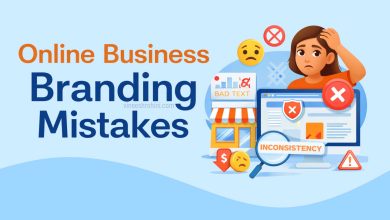How to Thrive in the World of Online Business
The world of business has undergone a transformative shift. The internet has become a bustling marketplace, and online businesses are flourishing like never before. Whether you’re an aspiring entrepreneur or an established business owner looking to expand into the online realm, thriving in the world of online business requires a strategic approach, adaptability, and a deep understanding of the digital landscape. In this comprehensive essay, we will explore the key strategies and insights needed to not only survive but thrive in the dynamic and competitive arena of online business.
I. Understanding the Online Business Landscape
Before diving into the strategies for success, it’s crucial to have a clear understanding of the online business landscape.
- E-commerce: E-commerce, or electronic commerce, is the buying and selling of goods and services online. It includes various models such as B2B (business to business), B2C (business to consumer), and C2C (consumer to consumer). Understanding which model aligns with your business goals is essential.
- Digital Marketing: Digital marketing encompasses a wide range of strategies, including SEO (search engine optimization), social media marketing, email marketing, content marketing, and paid advertising. These strategies are vital for attracting and retaining customers in the online space.
- Technology: Keeping abreast of technological advancements is paramount. This includes mobile optimization, website design, user experience (UX), and the integration of emerging technologies like AI and blockchain.
- Data and Analytics: Data-driven decision-making is a hallmark of successful online businesses. Utilizing data analytics tools to track website traffic, customer behavior, and sales patterns can provide invaluable insights.
II. Building a Strong Online Presence
A robust online presence is the foundation of thriving in the digital marketplace.
- Website Development: Your website is your digital storefront. It should be user-friendly, mobile-responsive, and aesthetically pleasing. Invest in professional web design and ensure that it aligns with your brand identity.
- Search Engine Optimization (SEO): SEO is the process of optimizing your website to rank higher in search engine results. Conduct keyword research, create high-quality content, and build backlinks to improve your website’s visibility.
- Social Media: Social media platforms are powerful tools for connecting with your audience. Establish a strong presence on platforms relevant to your target demographic and engage regularly with your followers.
- Content Marketing: Content is king in the online world. Develop a content strategy that provides value to your audience through blog posts, videos, infographics, and other forms of content.
- Email Marketing: Building an email list is an effective way to nurture leads and retain customers. Send personalized, engaging email campaigns to your subscribers.
III. Navigating the World of E-commerce
For businesses involved in selling products or services online, the world of e-commerce comes with its unique challenges and opportunities.
- User-Friendly Online Store: Ensure that your online store is easy to navigate and secure for transactions. Implement user-friendly features like a smooth checkout process and multiple payment options.
- Inventory Management: Efficient inventory management is crucial to prevent stockouts or overstocking. Utilize e-commerce platforms and software to track inventory levels in real-time.
- Customer Support: Provide excellent customer support through various channels, such as live chat, email, and phone. Respond promptly to inquiries and resolve issues to build trust and loyalty.
- Shipping and Fulfillment: Offer transparent shipping options with clear delivery times. Consider partnering with reliable shipping providers to ensure a smooth customer experience.
- Security and Privacy: Invest in robust security measures to protect customer data and build trust. Implement SSL certificates, encryption, and regular security audits.
IV. Digital Marketing Strategies
Effective digital marketing is essential for reaching and engaging your target audience.
- Search Engine Marketing (SEM): SEM involves paid advertising through platforms like Google Ads. It can help boost visibility and drive traffic to your website.
- Social Media Advertising: Leverage paid social media advertising on platforms like Facebook, Instagram, and Twitter to reach a wider audience and drive conversions.
- Content Marketing: Create high-quality, relevant content that resonates with your audience. This not only drives organic traffic but also establishes your authority in your niche.
- Email Marketing Automation: Utilize email marketing automation tools to send personalized messages, segment your audience, and nurture leads through the sales funnel.
- Analytics and Optimization: Regularly analyze the performance of your digital marketing efforts. Adjust your strategies based on data to improve ROI (return on investment).
V. E-commerce Payment Solutions
Offering seamless payment options is crucial for online businesses.
- Payment Gateways: Choose reliable payment gateways that offer secure transactions. Popular options include PayPal, Stripe, and Square.
- Mobile Payments: As more consumers shop via mobile devices, ensure that your payment process is mobile-responsive and supports mobile wallets like Apple Pay and Google Pay.
- International Payments: If you plan to cater to international customers, offer multiple currency options and consider cross-border payment solutions.
- Security and Compliance: Stay updated with payment security standards and compliance regulations, such as PCI DSS, to protect customer data.
VI. Customer Relationship Management (CRM)
Building strong relationships with customers is essential for long-term success.
- CRM Software: Invest in CRM software to track customer interactions, manage leads, and personalize communication.
- Personalization: Tailor your marketing messages and product recommendations based on customer behavior and preferences.
- Feedback and Reviews: Encourage customer feedback and reviews. Address concerns promptly and use feedback to improve your products and services.
- Loyalty Programs: Implement loyalty programs to reward repeat customers and foster brand loyalty.
VII. Adapting to Market Changes
The online business landscape is constantly evolving. To thrive, adaptability is key.
- Market Research: Stay informed about industry trends and consumer preferences through market research.
- Competitor Analysis: Continuously monitor your competitors to identify opportunities and threats.
- Agility and Innovation: Be willing to pivot and innovate in response to changing market conditions.
- Customer Feedback: Act on customer feedback to make improvements and stay ahead of the competition.
VIII. Legal and Ethical Considerations
Compliance with legal and ethical standards is non-negotiable in online business.
- Privacy and Data Protection: Adhere to data protection regulations, such as GDPR, and clearly communicate your privacy policy to customers.
- Intellectual Property: Respect intellectual property rights and ensure that your business does not infringe on copyrights, trademarks, or patents.
- Transparency: Maintain transparency in your business practices, including pricing, refund policies, and terms of service.
IX. Measuring Success
To thrive in the online business world, you must measure your success and make data-driven decisions.
- Key Performance Indicators (KPIs): Define KPIs that align with your business goals, such as conversion rates, customer acquisition cost, and customer lifetime value.
- Analytics Tools: Utilize analytics tools like Google Analytics to track website traffic and user behavior.
- Regular Reporting: Generate regular reports to assess the effectiveness of your strategies and make necessary adjustments.
Conclusion
Thriving in the world of online business is both challenging and rewarding. Success in this dynamic and competitive environment requires a holistic approach that encompasses a strong online presence, effective digital marketing, seamless e-commerce operations, and a commitment to customer satisfaction. Moreover, staying adaptable and continuously evolving your strategies is crucial to keeping pace with the ever-changing digital landscape. By implementing the strategies and insights outlined in this essay, you can position your online business not just to survive but to thrive in the digital age. So, embark on your digital journey with confidence, and watch your online business flourish.



